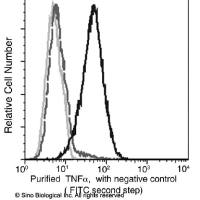An important step in cellular transformation and tumorigenesis is immortalization, in which cells gain the ability to grow indefinitely by bypassing cellular senescence that imposes a finite number of divisions in culture. Primary mouse embryonic fibroblast (MEF) cells have a limited growth capacity and on prolonged passaging spontaneously immortalize at a low frequency. In contrast to transformation of primary MEF cells that requires the presence of two cooperating oncogenes, immortalized MEF cells can be transformed by a single oncogene (Ras ) resulting in a loss of contact inhibition, anchorage-independent growth, and tumor formation in nude mice. Studies of MEF cells have played an important role in the elucidation of the molecular mechanisms underlying cellular immortalization, transformation, and tumorigenesis. Additionally, utilization of MEF cells disrupted for specific genes has provided a powerful tool to analyze the genetic regulation of these cellular processes. In this chapter, methods for analysis of cellular immortalization using the 3T3 protocol, as well as transformation of MEF cells using oncogenic retroviruses are provided. This is followed by protocols for analysis of transformed cell characteristics such as foci formation, anchorage independent growth, and tumor formation in nude mice.






